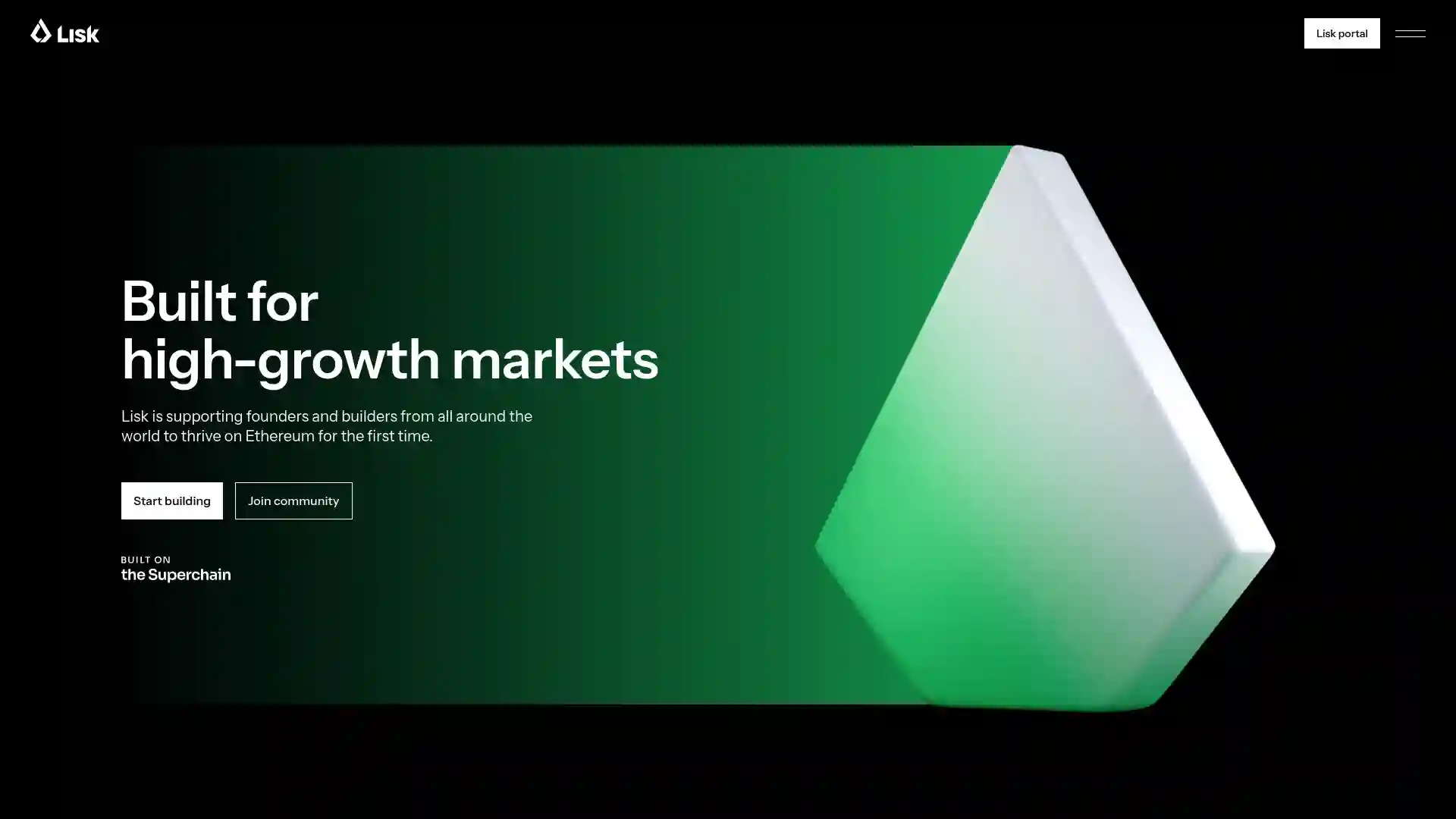Lisk (LSK)
Lisk is a blockchain-based platform launched in May 2016, designed to make blockchain technology more accessible for developers building decentralized applications (DApps). It achieves this through the use of sidechain technology, which allows for scalability and customization. The Lisk network officially began with the creation of its first block, known as the genesis block, containing 100 million LSK tokens. These initial tokens were distributed to participants and stakeholders in the Initial Coin Offering (ICO).
The platform seeks to address challenges developers face in creating applications using blockchain technology. By utilizing JavaScript, a widely-used programming language, Lisk simplifies the development process, enabling developers to join the platform with ease.
External security audit
To ensure robust security, Lisk underwent an external security audit conducted by Least Authority. This audit focused on the Lisk SDK 5.0.0 and the upcoming Lisk Core 3.0.0, covering the Network Longevity phase of the Lisk protocol roadmap. The audit concluded successfully, paving the way for the secure release of Lisk Core 3.0.0 on the mainnet.

| Ticker | LSK |
| Category | Smart Contract Platform |
| Website | https://lisk.com |
| @LiskHQ | |
| Telegram | Lisk_HQ |
| https://www.reddit.com/r/Lisk | |
| Contract Addresses | |
|---|---|
| ethereum | 0x60...3f Copied! Copied! |
| lisk | 0xac...24 Copied! Copied! |
Team
Lisk is led by Max Kordek, the CEO and co-founder, along with Oliver Beddows, who serves as Vice President and Chief Technology Officer. Kordek has been an advocate of blockchain technology for many years and enjoys science fiction. Beddows, with over 12 years of development experience, believes in the transformative power of blockchain technology. The team consists of around 50 members working on various aspects of the platform, including development, marketing, and operations, with bases in Zug, Switzerland, and Berlin, Germany.
Lisk operation
Lisk allows developers to create decentralized applications (DApps) using its platform, distinguishing itself from others like Ethereum by utilizing JavaScript instead of proprietary languages. This approach simplifies the development process and enables the creation of high-quality applications through sidechain technology and a software development kit (SDK).
Lisk's SDK core compartments
- Consensus algorithm: Utilizes Delegated Proof of Stake (DPoS).
- Sidechain: Enables developers to create independent blockchains connected to the main chain.
- Back-end: Provides customizable code for developers to freely create DApps.
- Front-end: Features a user-friendly interface for interaction with the chains.
Sidechains
Sidechains are autonomous blockchains connected to the main blockchain, allowing for interoperability without impacting performance. This technology enables developers to customize elements like consensus algorithms and asset tracking. Developers can create their own blockchains as sidechains while Lisk maintains the main chain, ensuring network security.
Governance of Lisk blockchain
The Lisk network is decentralized and trustless, secured by 101 democratically elected delegates responsible for validating transactions. All Lisk accounts can vote for registered delegates, utilizing a Delegated Proof of Stake (DPoS) consensus algorithm.
Delegated Proof of Stake
In Lisk's DPoS system, users can become delegates by registering an account on the network. LSK holders can vote with their tokens, where 1 LSK equals 1 vote. The top 101 delegates actively maintain network security by adding new blocks, while others remain on standby.
Initializing a Lisk account
A Lisk account includes a private key and a public key. The public key is derived from the private key, creating a Lisk address linked to the account. Account initialization ensures security by recording the correct public key on the blockchain. Users are advised to initialize their accounts by making a small transaction before conducting larger transactions.
Applications created on Lisk
Several applications have been developed on the Lisk platform, such as Lisk Bike, Lisk Supply Chain, and Lisk Roulette, among others. These applications utilize the platform's decentralized capabilities for various purposes like bicycle sharing, supply chain tracking, and gaming.
Tokenomics
Lisk's blockchain launched with an initial distribution of 100 million LSK tokens. The token supply is disinflationary, with block rewards starting at 5 LSK per new block, decreasing annually by 1 LSK. Since October 2020, block rewards have been set at 1 LSK, a rate intended to remain constant.
LSK Initial Coin Offering
- Status: Finished
- LSK ICO Price: $0.0746682
- Start Date: 02/22/2016
- End Date: 03/21/2016
- Funds Raised: USD $6,346,800
- ICO Token Supply: 100,000,000
- Token Supply After ICO: Increases
Lisk transaction fees
- Outgoing transaction: 0.1 LSK
- Second passphrase: 5 LSK
- Delegate registration: 25 LSK
- Voting: 1 LSK per voting round
- Multi-sig: 5 LSK per member
LSK cryptocurrency exchanges
Lisk is available on several exchanges, including Binance, Poloniex, Bittrex, HitBTC, CoinSwitch, Kraken, Cointree, KuCoin, YoBitNet, and Huobi. Users typically purchase Bitcoin or Ethereum to exchange for Lisk.
Storing the LSK
Lisk offers a wallet for storing tokens, available on both desktop and mobile platforms. Users can vote for delegates and monitor blockchain activity. Recommended third-party wallets include Trezor, Ledger Nano, Atomic Wallet, Exodus, and Guarda.
